Data analysis: Which opponent do the Thunder prefer to meet in the Finals? Is it the Pacers or the Knicks?
The Thunder are waiting for their opponents in the NBA Finals, and their opponents will be between the Pacers and the Knicks, who currently lead 3-2 in the aggregate, and the sixth game of the Eastern Conference Finals will be played at 8 a.m. Beijing time on June 1.
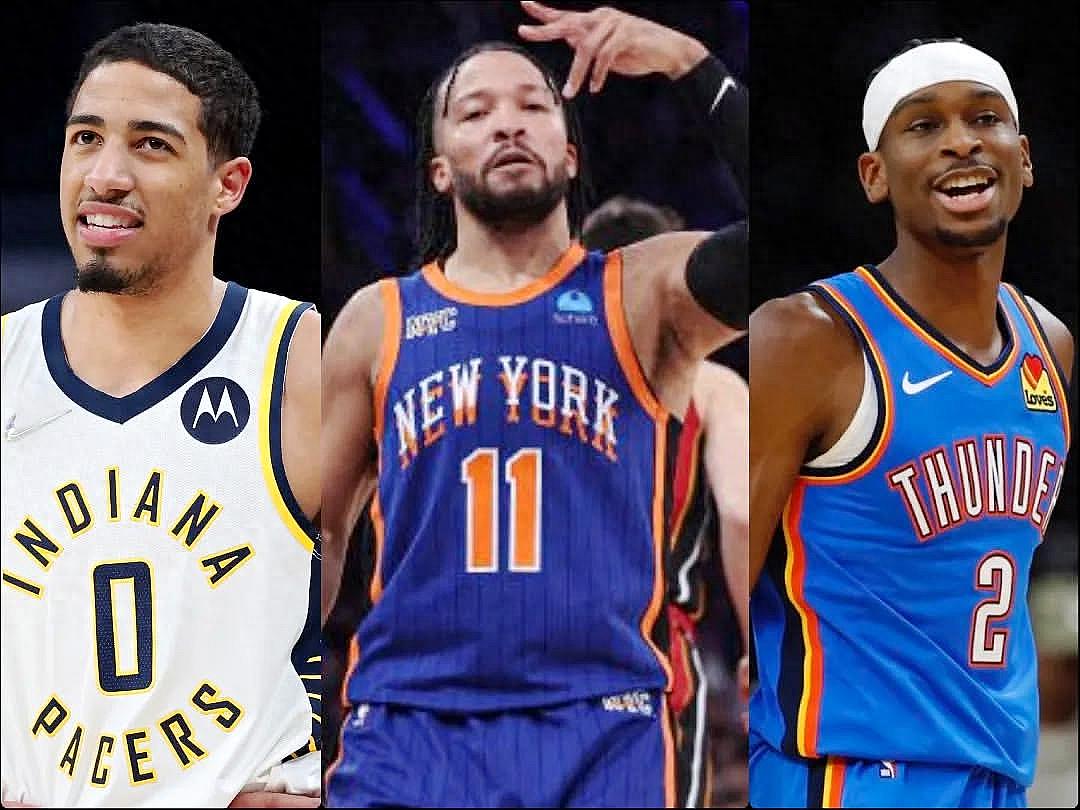
For the Thunder, who would they rather meet in the Finals? Here's an analysis of the Thunder's strengths and weaknesses against the Pacers and Knicks –
If the opponent is a Pacer
Thunder advantage 1: Alexander will crush the Pacers defense
The Thunder won both of their regular season games against the Pacers, and Alexander's performance was dominant. The rookie MVP averaged 39 points, eight assists and seven rebounds per game in two games while shooting 55.6 percent from the field and 63.6 percent from three-point range — the highest percentage of 40.5 points per game against the Pistons this season out of 29 opponents in the league.
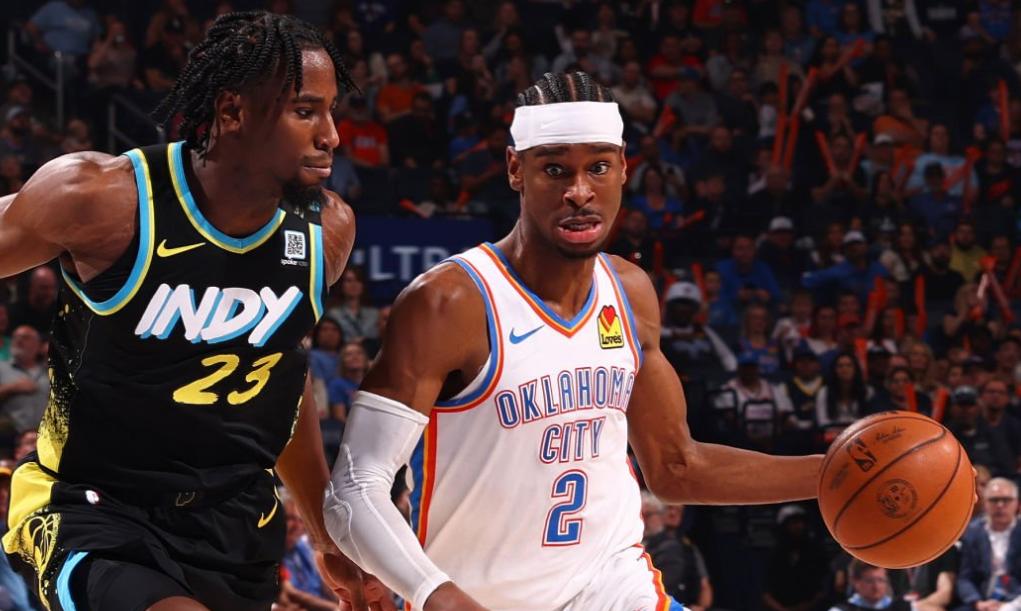
The Pacers may defend Alexander with players like Nembhard and Nesmith, but even if they're good defenders, it's hard to limit the superstar. Even if Haliburton is outstanding, Alexander will still be the dominant player in the series.
Thunder advantage 2: Can target the Pacers' weak basket protection
The Thunder's offense is centered on attacking the basket (ranking second in the playoffs with 51.6 points per game; and second in interior scoring with 50.6 points). Alexander is good at making breakaways, and if he doesn't finish, he can also share the ball to Holmgren and Harden on the inside.
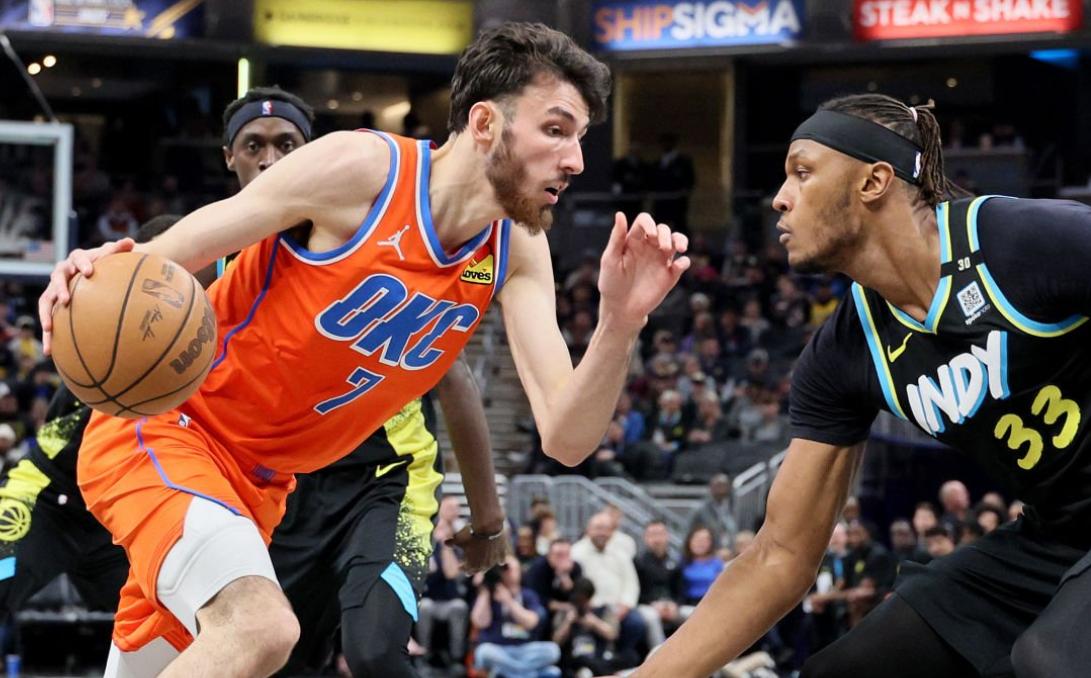
The Pacers' ability to protect the basket is worrying (64.1% shooting from 5 feet in the playoffs, ranking 9th; The interior conceded 47.7 points, ranking 11th). In addition to the league's best basket protector, Myles Turner, the Pacers lack players who can stop opponents from hitting the interior, and the Thunder will be sure to use this to force the attack.
Thunder disadvantage 1: Difficult to break up the Pacers' offense
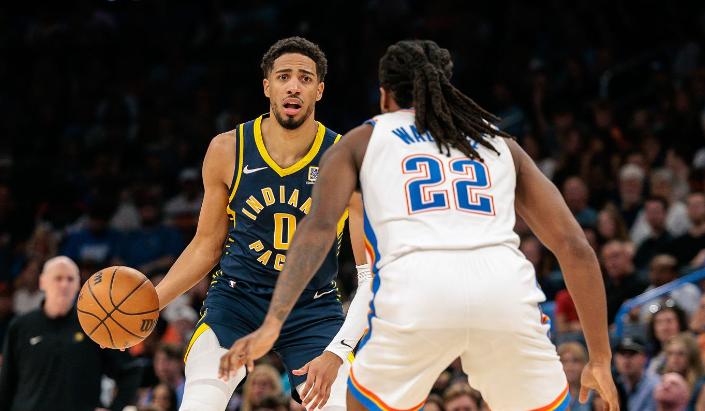
The Thunder have the best defense in the NBA, centered on forcing turnovers (18 turnovers per game in the playoffs, ranking first) and converting turnovers into 23.8 points per game (number one). But the Pacers, under Haliburton, have a solid offensive system, averaging 12.7 turnovers per game in the playoffs (the fifth-fewest in the league) and conceding 12.5 points per game (the fewest in the league).
The Thunder need to keep pressing to disrupt the Pacers' rhythm, and if they can't, they will have to create an advantage in other ways.
Thunder Disadvantage 2: The three-point battle may fall into passivity
The Thunder are one of the most well-rounded teams in the league, but their biggest recent shortcoming has been poor three-point shooting (33.6 percent from three-point range in the playoffs, ranking 13th), and Holmgren's 33.3 percent three-point shooting percentage is the highest among starters.
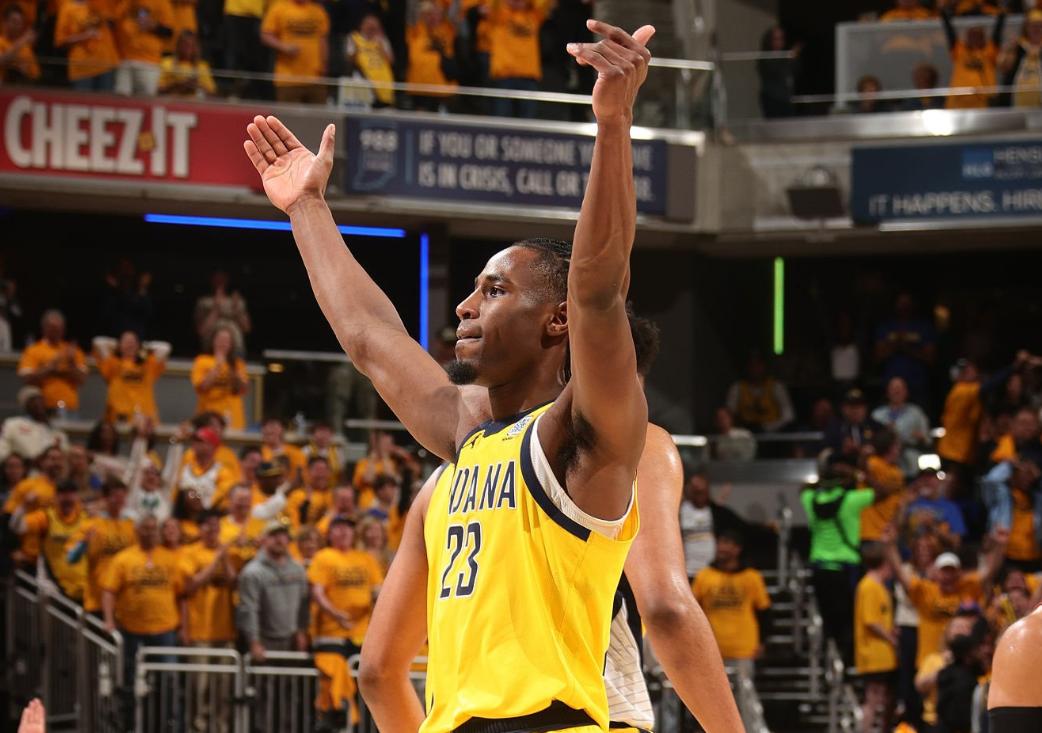
On the other hand, the Pacers are accurate in three-point shooting (39.3% three-point shooting rate in the playoffs, ranking first in the league). If the Thunder can't hit a three-pointer, it will be harder to keep up with the Pacers' fast-break firepower.
If the opponent is the Knicks
Thunder advantage 1: The depth of the roster is stronger than that of the Knicks
The Thunder's bench was game-changing in the playoffs: Caruso was a top defender with championship experience, shooting 41.5 percent from three-point range; Carson Wallace is also good at defense, and the transition offense is difficult to stop; In addition, there are Aaron Wiggins, Isaiah Joe, Kenrich Williams, etc., all of whom can contribute value for a limited time.
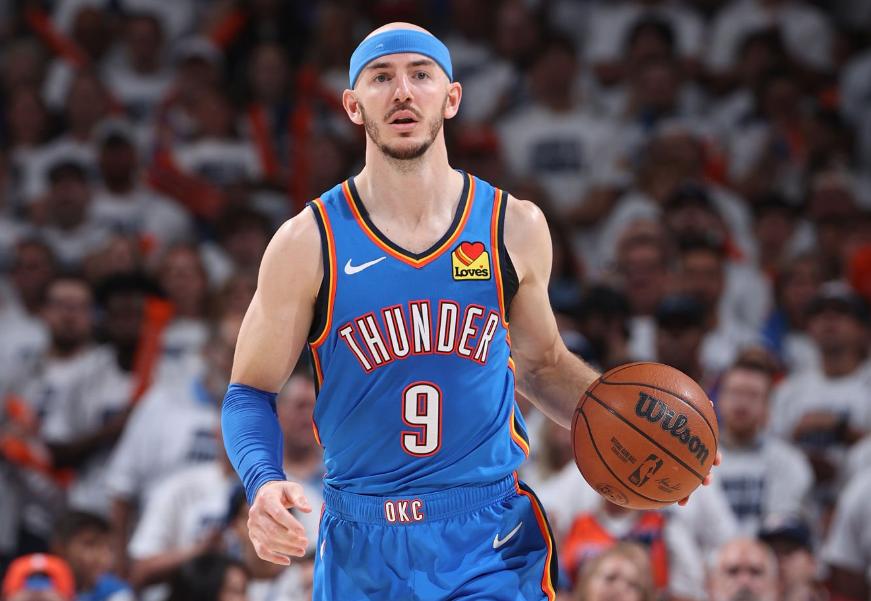
The Knicks, on the other hand, are lacking in depth: all regular starters are averaging at least 35 minutes per game, and the only reliable backups are McBride and Mitchell Robinson.
Thunder advantage 2: Ability to limit Brunson in a targeted manner
It may seem like "defending Brunson" shouldn't be listed as an advantage, but the logic is that it's easier to strategize against a team that relies on a single scorer than against a multi-core team.
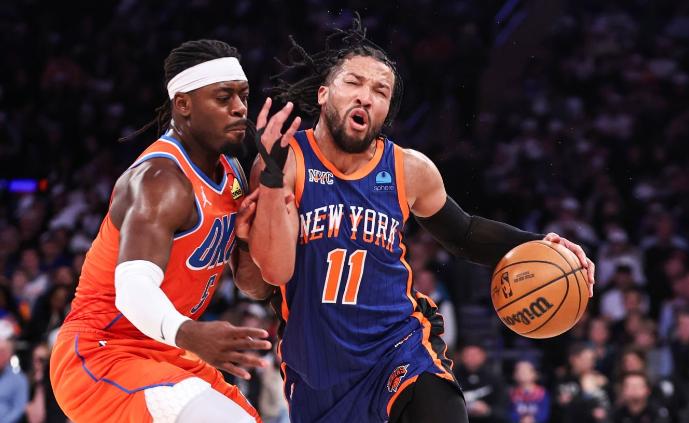
Brunson averaged 30.1 points per game in the playoffs, and the Knicks' offense relied heavily on the star guard's individual creativity. The Thunder's defense is good at targeting the core of the opposition: Jaren Jackson Jr. was limited to 16 points per game (37.9 percent shooting) in the first round, Jokic (28.4 points per game, 47.9 percent) in the second round, and Anthony Edwards (23 points, 47.1 percent) in the Western Conference finals.
The Thunder can use Dort, Caruso, and Wallace to continue to pressure Brunson, and once he is restricted, the Knicks will be unsustainable.
Thunder Disadvantage 1: The Knicks are more capable of defending SGA
Alexander is one of the league's toughest scorers to stop and can often cause headaches for defenders. But the Knicks have Anunoby and can play against Alexander; Bridges' defensive consistency has declined this season, but he can still share the defensive load; Even Hart can help with a tough confrontation — the Knicks have three strong points to limit Alexander.
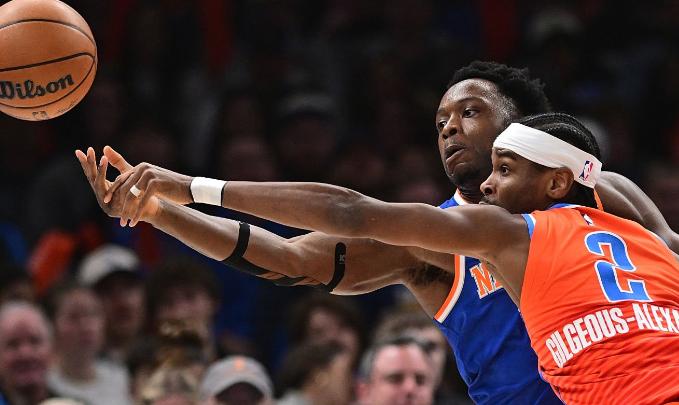
In addition, Robinson's return makes up for the lack of basket protection against the Thunder in the regular season, and his blocking ability will further disrupt Alexander's offensive rhythm.
Thunder disadvantage 2: The Knicks can create a threat through the front board
In the four games the Thunder have lost in the playoffs this season, they have allowed opponents to grab 12 offensive rebounds and conceded 19.8 points in secondary offensive scoring per game.
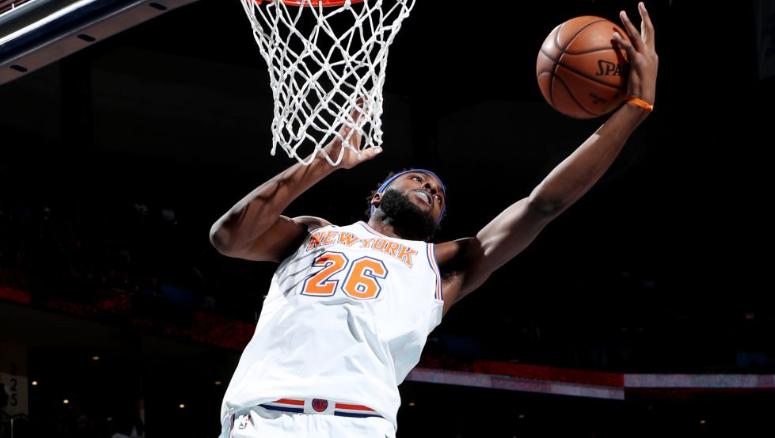
The Knicks are good at grabbing offensive rebounds (11.7 per game in the playoffs, 6th in the league; 17.1 points on secondary offense, 2nd in the league). Robinson is averaging 3.6 offensive rebounds per game, while Hart is also contributing 2.5 — a team-wide effort.
It is difficult to score against the Thunder defense, but if the Knicks can continue to survive through a second offense, they may be dragged into a stalemate.
summary
Whether the opponent is the Pacers or the Knicks, the Thunder will need to play to their strengths and avoid their weaknesses: against the Pacers, they will need to use Alexander's individual ability to tear apart the defense, while trying to limit Haliburton's tandem; Against the Knicks, use the depth to wear down the opponent and lock up Brunson on the defensive end.
The two teams have very different styles, but the Thunder are still the more favored side in the Finals with their MVP-level core, top-tier defense, and roster depth. Do you think the Thunder would prefer to meet the Pacers or the Knicks in the Finals? Feel free to leave a message to express your opinions.










 Links
Links
 Contact
Contact
 App
App


